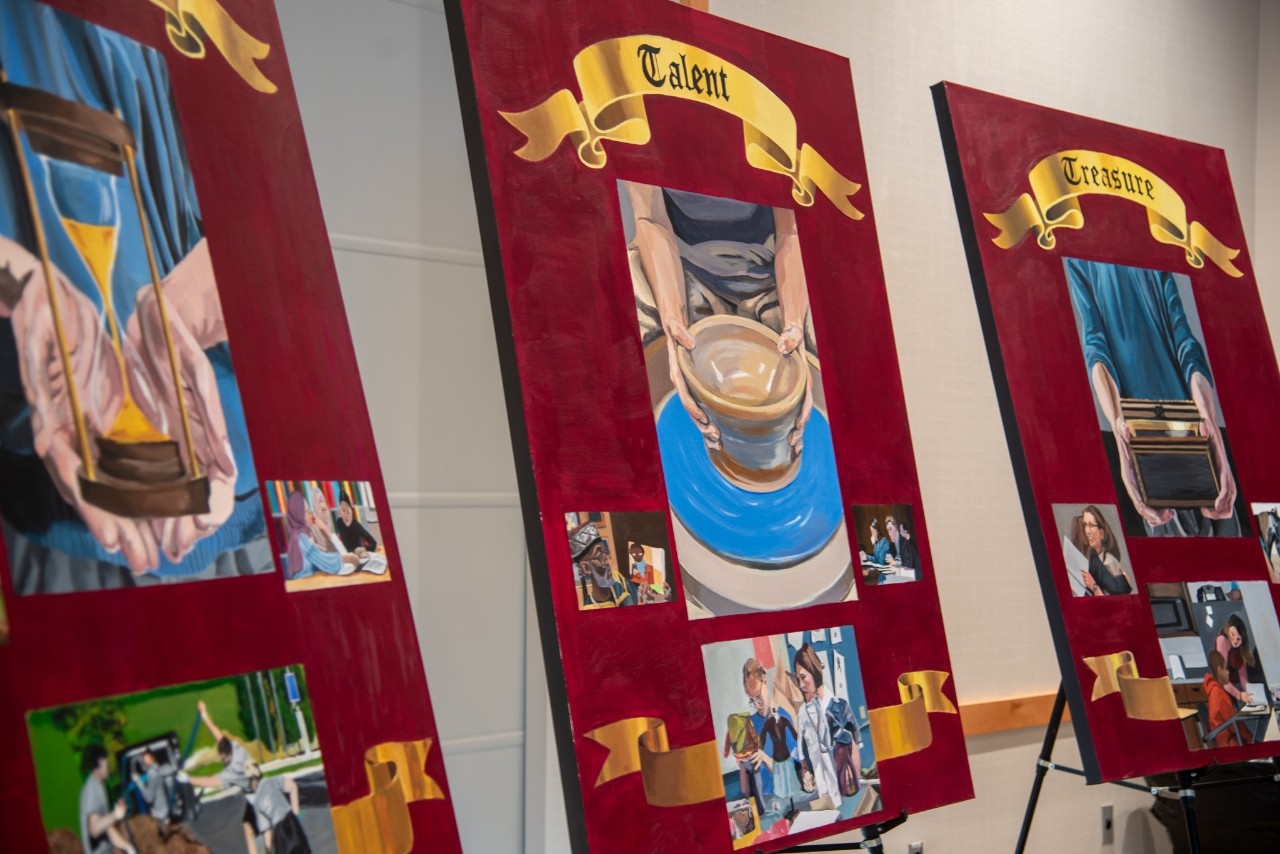

Since its inception in 1999, the Mayerson Student Philanthropy Project has been a driver for community stewardship among Northern Kentucky University students, empowering classes to award grant money to nonprofits of their choice.
On Monday, April 21, the project celebrated its 25th anniversary with multiple events, including an awards ceremony in which students presented grants to their class’ selected nonprofits, an exhibit and reception for donors and any faculty who’d participated in the project and an anniversary dinner. The events commemorated the project’s lasting impact and growth, showing how education can make a difference far beyond the classroom. The anniversary dinner, which closed the celebration, featured a number of speakers, including a nonprofit representative, an alumnus, a faculty member, president Cady Short-Thompson, Neal Mayerson, president of the The Mayerson Foundation and Dr. Shauna Reilly, assistant provost for experiential learning.
Victoria Short, who graduated from NKU in 2016 with a Bachelor of Arts in public relations and again in 2021 with a master of public administration, was chosen as the alumni speaker for her deep history with the project.
“We didn’t initially know this, but she was unique in that she did a Mayerson class when she was a dual-credit student here at NKU and then as a grad student,” Dr. Reilly says. “Then, in the meantime, she did an internship with a nonprofit that received a Mayerson grant, and now she works at a nonprofit. It's kind of a full circle of experiences.”
Dr. Reilly says that looking back at the many agencies that have benefitted from the programs over the past 25 years drove home how impactful the Mayerson project has been.
“Looking at the various places students have invested, there are certainly trends but there are also some things that remain the same,” she says. “They want to invest in youth. They want to invest in programs that end food insecurity or limit food insecurity and they want to invest in mental health issues. So you can see that the students' passions have certainly come through in those awards.”
The Mayerson Project also aims to expand beyond grants by incorporating service learning into the program.
“Some of the main traits prevalent in the Mayerson’s work have been time, talent and treasure,” she says. “We give treasure through the Student Philanthropy Project. But a lot of service learning is about talent, where folks give their talent in terms of the creation of things like GIS maps or PR programs. One of the other pieces is time, and so we've been exploring looking at a nonprofit internship program as part of this sort of larger viewpoint to expand the impact of the project.”
Looking back at the past semester, Dr. Reilly says that the ENV 493 class’s investment in the Imago nature preserve, focusing on the use of environmental resources, stood out. She also noted the unique instance of two classes choosing to support the Diocese of Covington’s Center for Children and Families, with occupational therapy students and kinesiology students both reaching out.
“Reiko Ozaki does a social work class where they do an impact campaign in addition to the Mayerson Project,” she adds. They get $2,000 to donate as part of the class, and then they try to fundraise up to the match. And so that means that the students are going out and really showing their passion for the topic.”
Senior Web Content Specialist